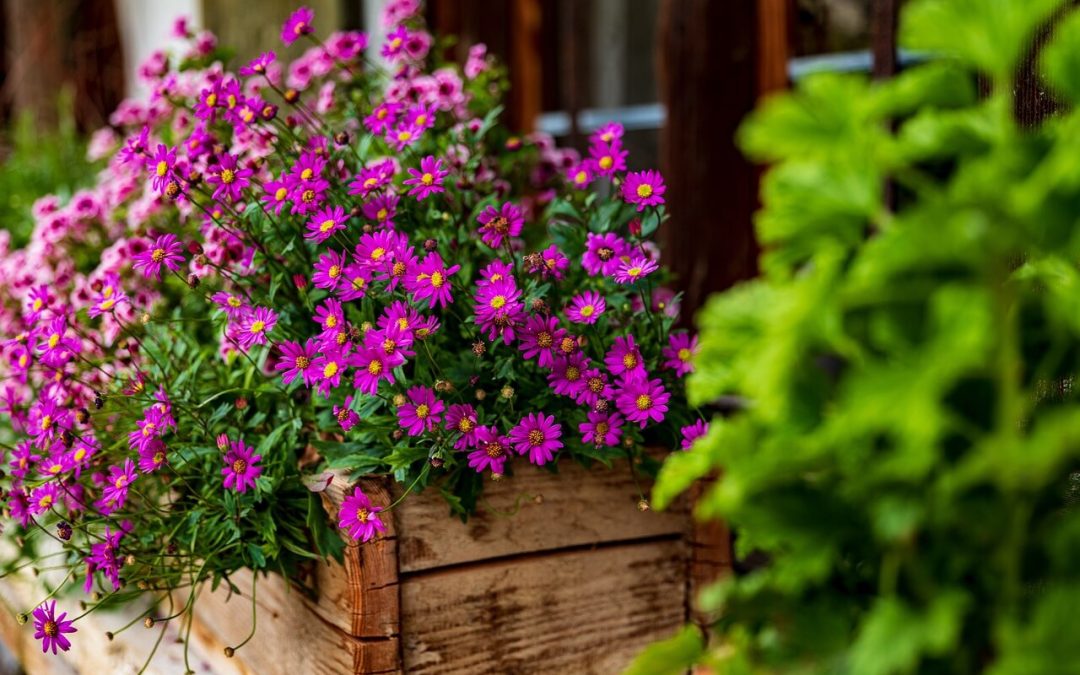Container gardening is a great way to enjoy fresh, home-grown herbs and produce, even if you don’t have a lot of space. A deck or patio is ideal for a small garden if the area gets plenty of sun and is easy to access. Here are a few tips for creating a container garden on your deck.
Selecting Planters
When choosing containers for your deck garden, make sure they are large enough to accommodate the plants you want to grow. Consider the material of the container as well; plastic is lightweight and affordable, while clay or ceramic pots are heavier but provide better airflow. Check the containers to verify they have drainage holes to prevent water from pooling in the soil. Too much moisture can lead to root rot. Look at the amount of space you’ll need for each variety of plant and choose your containers and pots accordingly.
Pick the Right Plants for Container Gardening
Choose herbs, vegetables, or flowers suitable for your deck’s environment. Check the plants’ sunlight, temperature, and humidity requirements before purchasing them to ensure they will thrive in the conditions on your porch or patio. If unsure, talk to an expert at your local garden shop or home improvement store.
Companion Planting
Companion planting involves placing plants that benefit one another together. Planting basil and tomatoes together improves the flavor of the tomatoes, and the basil helps repel pests. Marigolds are a popular flower to grow in vegetable beds because they help repel pests that could damage your produce.
Choose the Right Soil for Container Gardening
Use potting soil designed for growing in containers. This type of soil is lightweight, formulated to provide nutrients, and has good drainage, which is essential when growing plants in pots. Garden centers sell potting mixes appropriate for container gardening, or you can mix your own.
Water Properly
Containers dry out more quickly than garden beds, especially on hot, sunny days. Water your potted plants regularly, and install a self-watering system if you will be away for an extended period.
Fertilize Regularly When Container Gardening
Container plants need nutrients to grow, so use slow-release fertilizer or organic compost to feed your plants and keep them healthy and strong all season.
Container Gardening: Monitor for Pests and Diseases
Watch for pests and diseases, and take action if you notice issues. If a plant becomes infested, move it away from the rest of the garden. Inspect your plants and remove dead or damaged leaves.
Prune Plants As Needed
Pruning keeps your plants healthy and promotes new growth. Remove dead, diseased, and damaged leaves or stems, and prune overgrown branches.
Enjoy the fruits (and vegetables) of your labor. Container gardening is fun and rewarding for the entire family; even young children can get involved. With a little time and effort, you’ll soon enjoy a garden harvest.
Phoenix Property Inspections provides inspections to homebuyers and sellers in San Luis Obispo, Santa Barbara, and Ventura counties in California. Contact us to schedule our services.

